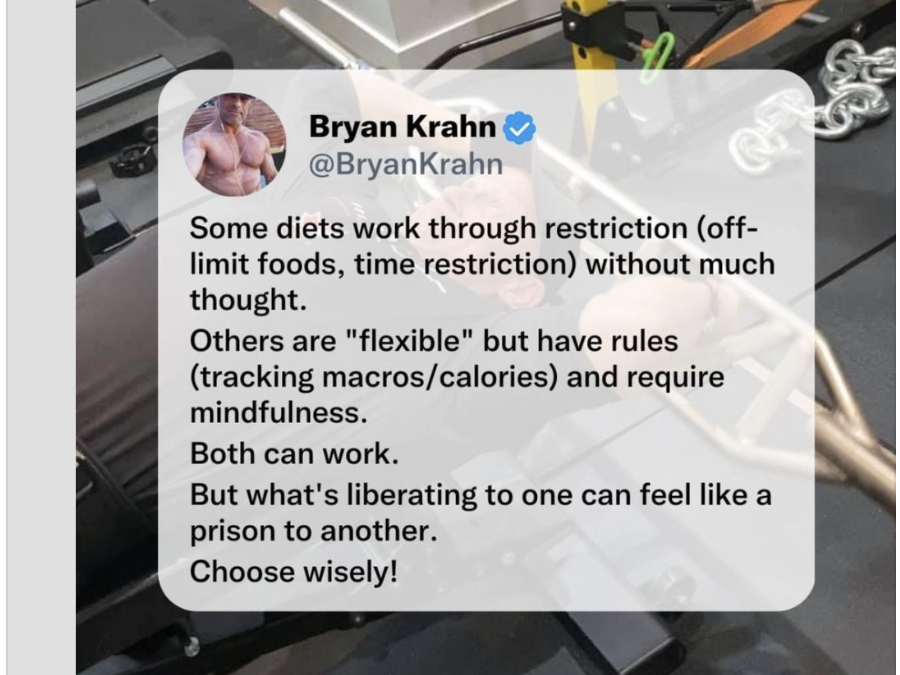Pretty much every “diet” works through two, principal mechanisms:
1. Caloric restriction.
2. Mindfulness and enhanced mental engagement.
And the balance of these mechanisms varies depending on the protocol.
For example, intermittent fasting is less about “mindfulness” and more about reducing calories through rigid time restrictions. In fact, proponents like it exactly because you can eat “normally”—whatever that means—without having to ascribe to goofy rules.
Basically, if you have discipline and can tell time, the diet will work.
On the other hand, protocols like carb or calorie cycling encourage mental engagement through the prescription of rules—i.e. a set of specific guidelines or restrictions on what to eat and when to eat it.
On the plus side, having clear rules and guidelines can make it easier for many to stick to a diet plan and achieve their goals. Rules-based eating can also help individuals feel more proactive and in control of their diet and their health.
These types of protocols also help individuals set clear boundaries around their eating habits, which can be helpful for people with certain health conditions or dietary restrictions.
However, there’s a potential downside to requiring “rules” and deep engagement with the simple act of eating. Especially for those with a history of food or body image issues. It’s like throwing gas on a still-smoldering fire!
Rules-based eating can quickly become obsessive and lead to disordered eating patterns, such as orthorexia, which is an unhealthy obsession with eating only “clean” foods.
Furthermore, the lack of flexibility with rules-based eating can be very restrictive and limit food choices, which can make it more challenging to stick to a diet over the long term and in social situations.
Now granted, there are ways to make many of these rules-based diets more manageable and easier to weave into an individual’s lifestyle and less of a paradoxical “all or nothing” conundrum.
But personally, I say it’s better to err on the side of caution and lean toward protocols that encourage mindfulness without making eating a point of constant contention.
– Coach Bryan

